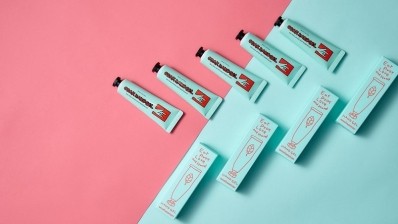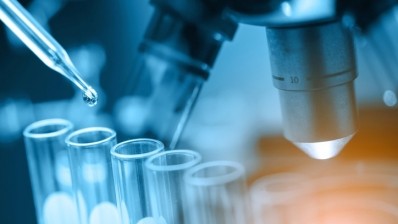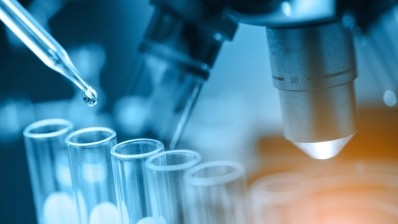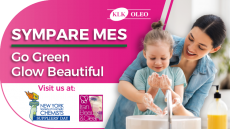False advertising: South Korea tightens down on EGF cosmetic products with inappropriate claims

MFDS recently announced that it had conducted an investigation on the online marketing claims of cosmetic products with EGF as an ingredient.
The investigation was conducted as part of the department’s efforts to monitor e-commerce sales in the country.
From May to June of this year, the MFDS scrutinised 2,557 cosmetic product listings online and found that 549 had violated regulations by making false claims related to EGF.
According to MFDS, 515 cases claimed that products with EGF can enhance the cell regeneration, relieve redness and fade scars.
MFDS said these products were promoted in a way that could lead consumers to believe it was a medical product.
Additionally, twelve cases were identified for promoting functional cosmetic claims such as skin brightening and wrinkle improvement, said MFDS.
Lastly, MFDS identified 22 cases for having misleading advertisements with vague terminology such as ‘good for the dermis’.
According to the authorities, the companies were then contacted to correct their promotional material.
However, the products were not pulled from shelves as MFDS only took issue with their advertising and did not deem them and the inclusion of EGF harmful to consumers.
As such, MFDS did not release specific information about the companies, brands and products that they investigated.
MFDS concluded that it will reinforce its efforts to monitor and respond to products that make false and inaccurate marketing claims and advertising to protect consumers, noting that it has become especially important considering the swift growth of e-commerce in the country.
“The distribution scale of food and cosmetics online is growing rapidly. We will strengthen our surveillance function by actively responding to false advertising online, so no harm comes to consumers.”
A controversial ingredient?
Found naturally in the body, EGF, are proteins responsible for cell regeneration that help the skin to heal.
Initially developed for the medical field, it was popularised by South Korean cosmeceutical brands such as Easydew EX, which claimed that EGF could advance the acne healing and promote collagen production.
According to MFDS, the use of EGF, or RH-oligopeptide-1, is restricted to 0.001% or less in cosmetics.
EGF is considered to be a rather controversial cosmetic ingredient with concerns over its safety.
In January last year, China’s National Medical Products Administration (NMPA) banned the use of EGF, in cosmetic products, citing safety and efficacy concerns.
Additionally, the NMPA also banned marketing claims that referred to EGF.
However, the synthetic version, oligopeptide-1 can be used as a skin conditioner and is listed in China's Inventory of Existing Cosmetic Ingredients (IECIC).
This was a part of the agency’s efforts to crack down on cosmeceutical products and prevent companies from promoting their cosmetic products as having ‘medical benefits’.









![Indus Valley is working to corner 30% of India's online premium boxed hair colour market. [Indus Valley]](/var/wrbm_gb_food_pharma/storage/images/_aliases/wrbm_tiny/publications/cosmetics/cosmeticsdesign-asia.com/article/2024/07/26/indus-valley-aims-to-secure-30-of-india-s-online-premium-hair-colour-market-with-organic-offerings/17594932-5-eng-GB/Indus-Valley-aims-to-secure-30-of-India-s-online-premium-hair-colour-market-with-organic-offerings.jpg)
![[Getty Images]](/var/wrbm_gb_food_pharma/storage/images/_aliases/wrbm_tiny/publications/cosmetics/cosmeticsdesign-asia.com/china/china-focus-latest-developments-in-china-s-booming-beauty-market25/17606695-1-eng-GB/China-focus-Latest-developments-in-China-s-booming-beauty-market.jpg)
![Kosé has launched makeup brand Visée in Singapore as part of plans to reinforce its position in SEA. [Visée]](/var/wrbm_gb_food_pharma/storage/images/_aliases/wrbm_tiny/publications/cosmetics/cosmeticsdesign-asia.com/headlines/business-financial/visee-singapore-kose-aims-to-enhance-brand-visibility-in-sea-with-new-launch/17587264-1-eng-GB/Visee-Singapore-Kose-aims-to-enhance-brand-visibility-in-SEA-with-new-launch.jpg)
![ble C&C is set on reinforcing its competitiveness in China’s beauty market. [Missha]](/var/wrbm_gb_food_pharma/storage/images/_aliases/wrbm_tiny/publications/cosmetics/cosmeticsdesign-asia.com/headlines/business-financial/able-c-c-aims-to-strengthen-competitiveness-in-china-through-online-expansion-kol-collabs/17591626-1-eng-GB/Able-C-C-aims-to-strengthen-competitiveness-in-China-through-online-expansion-KOL-collabs.jpg)

![LG H&H genetic study says 23 genetic regions affect natural skin tone. [Getty Images]](/var/wrbm_gb_food_pharma/storage/images/_aliases/wrbm_tiny/publications/cosmetics/cosmeticsdesign-asia.com/article/2024/07/23/lg-h-h-discovery-of-genetic-skin-tone-factors-in-east-asians-potentially-key-to-skin-radiance-developments/17587210-1-eng-GB/LG-H-H-discovery-of-genetic-skin-tone-factors-in-East-Asians-potentially-key-to-skin-radiance-developments.jpg)

![DR.CI:LABO expects brand-supplier partnerships gain more public prominence as consumers interest in skin care grows online. [Dr.Ci:Labo]](/var/wrbm_gb_food_pharma/storage/images/_aliases/wrbm_tiny/publications/cosmetics/cosmeticsdesign-asia.com/article/2024/07/22/brand-supplier-partnerships-will-come-to-the-fore-amid-the-online-skin-care-landscape-dr.ci-labo/17576755-1-eng-GB/Brand-supplier-partnerships-will-come-to-the-fore-amid-the-online-skin-care-landscape-DR.CI-LABO.png)


